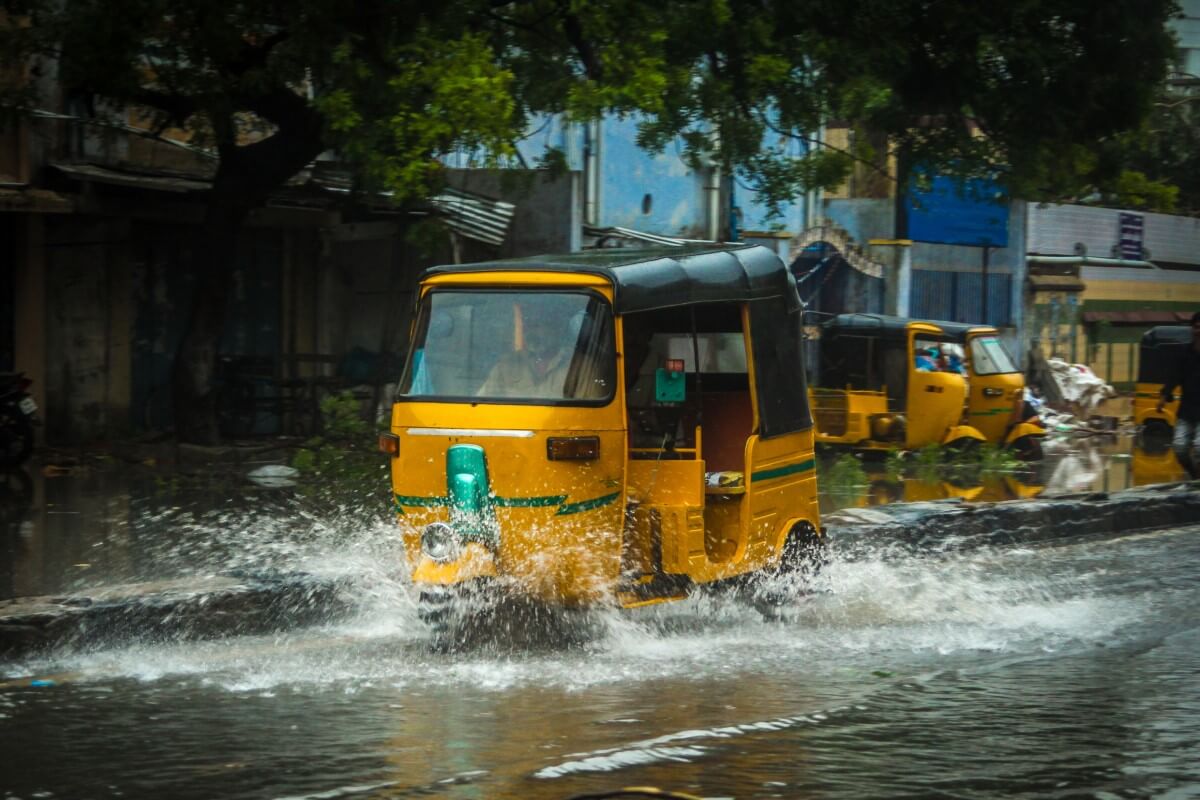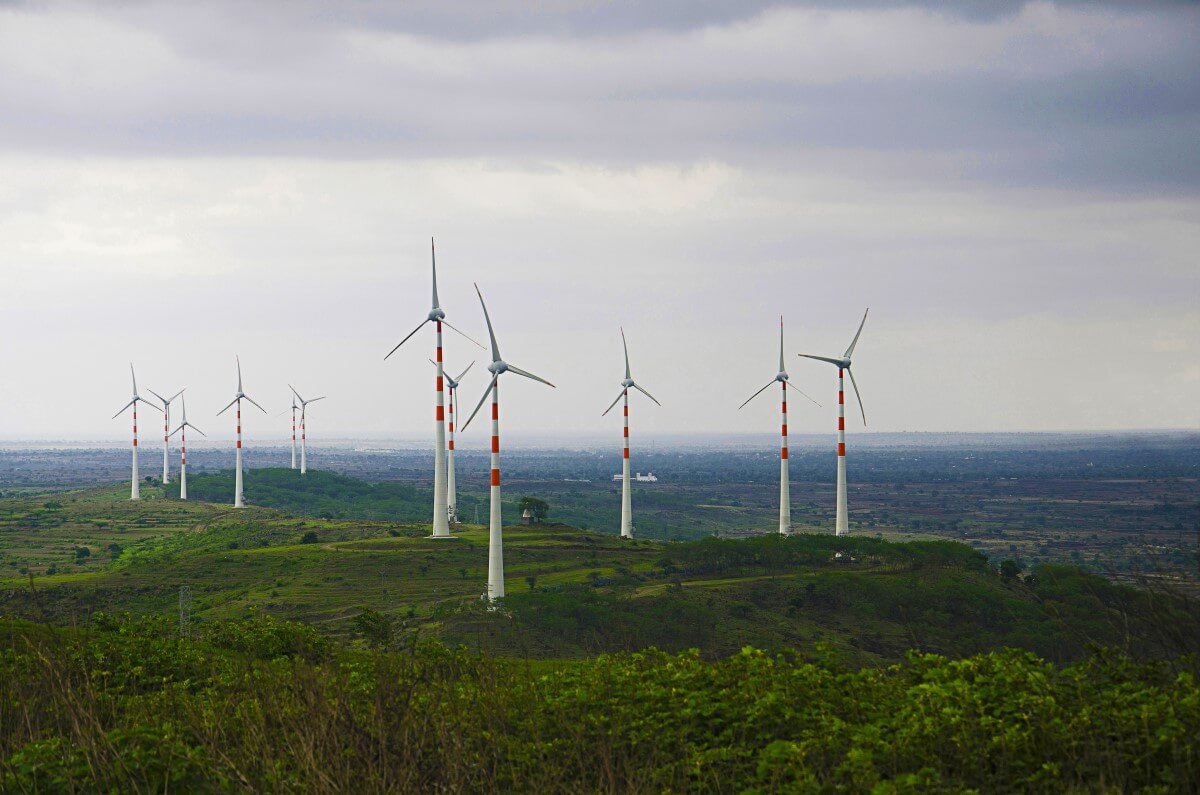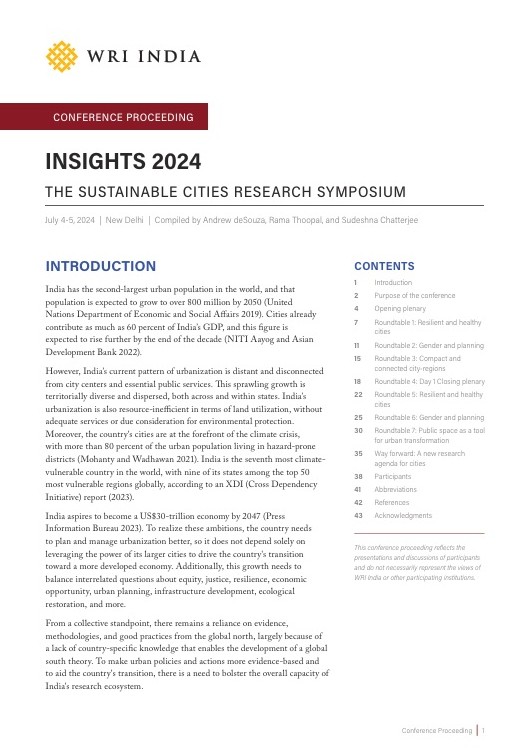A Decade of Connect Karo: Advancing Urban Development, Food Security, Climate Resilience and Electric Mobility
by -
Since 2013, WRI India’s annual flagship event, Connect Karo, has served as a meaningful platform for facilitating dialogue between policymakers, experts and stakeholders to drive sustainable change and progress, particularly on issues of urban development and climate change.
In the 10 years since its inception, several key decision makers have participated in these discussions and key takeaways from these sessions have impacted sustainability outcomes for our cities. As we mark a decade since its first edition, Connect Karo 2023 will be held under a theme that exemplifies WRI India’s mission “to move human society to live in ways that protect Earth’s environment and its capacity to provide for the needs and aspirations of current and future generations.”
Under the overarching theme of “For People, Nature and Climate,” Connect Karo 2023 will enable stakeholders across the world to share their knowledge, perspectives and experiences, to move toward solutions that respond effectively to the critical environmental and sustainability challenges facing India. The two-day event will see multiple sessions including panel discussions, presentations, and the release of findings, publications and reports across six major themes: Urban Planning, Water and Resilience, Integrated and Electric Mobility, Climate and Clean Air, Energy, and Food.
Urban Planning
Indian cities face challenges such as congestion, pollution, land use, and inequitable access to jobs and core urban services. To build sustainable, livable, cities of the future that place people at their center, emphasis on urban planning is necessary. Data-led urban planning can help shape connected, low carbon and resilient cities. This requires policies and plans informed with robust well-researched data and recommendations, participation in first-practice demonstration projects and strengthening the capacity of stakeholders at all levels. Sessions held under this theme celebrate the progress that has been made in the last few decades and bring relevant stakeholders together to share their experiences, challenges, recent developments and solutions.
Water and Resilience
Rapid urbanization is impacting the water resilience of cities, further exacerbating climate change-induced risks. These include water scarcity, extreme heat and flooding. WRI India focuses on identifying and forecasting these challenges and developing science-based and evidence-driven solutions to achieve resilient water outcomes for all. This theme will delve into urbanization pathways that prioritize human well-being, ecological sustainability and economic productivity, by focusing on city regions and incorporating nature-based solutions. Sessions held under the banner will inform discussions ranging from the challenges to water-sensitive urban management to improving community-level water security.

Integrated and Electric Mobility
Equitable, accessible and sustainable transport solutions for all are critical to building climate resilience. Along with serving India's decarbonization goals, such an approach also focuses on people-centric street designs, last-mile connectivity, enhancing public transport services and electrification of buses. Under this theme, Connect Karo 2023 offers space for sharing technical expertise and encourages dialogue amongst different stakeholders on strengthening the financial aspects of electric mobility, sharing challenges and gaps in capacity building, as well as encouraging innovation to overcome two key challenges: service delivery and operational management.
Climate and Clean Air
As India shifts towards a low-carbon economy, the focus is now on exploring climate policies that can ensure sustainable, equitable and inclusive development in India. Understanding transition challenges for small businesses, designing effective carbon markets, supporting data-driven climate action plans, and promoting cross-sectoral strategies for clean air initiatives will be crucial to meet this goal. Under this theme, we will see stakeholders share experiences on climate action in different cities and identify the focus areas, challenges and pathways for ensuring a just transition in India.

Energy
India’s energy transition journey has taken significant steps towards decarbonizing the economy and promoting renewable energy, with an ambitious target of 500 GW of non-fossil fuel energy capacity by 2030. The sessions under the energy track will explore different aspects of India's clean energy transition such as highlighting the role of reliable electricity access for better provisioning of healthcare services in rural India, perspectives on financing an economy-wide energy transition, the opportunities and challenges in leveraging the country's renewable energy potential for green hydrogen as well as the importance of adopting circular economy principles in the responsible and sustainable growth of the renewable energy sector.
Food
India, now the most populous country in the world, is faced with the challenge of ensuring food and nutrition security for over 1.4 billion citizens. Reducing food loss and food waste is imperative to achieving this goal and optimizing the utilization of our resources. Sessions held under this theme will look at the urgent need to transform India's food systems by reimagining the production, storage and distribution of food, as well as improving consumption practices through enabling policies and collaborative efforts by actors across supply chains.
Join us on the 17th and 18th of July at the India Habitat Centre for Connect Karo 2023, for people, nature and climate. Register here. Click here for the agenda.


